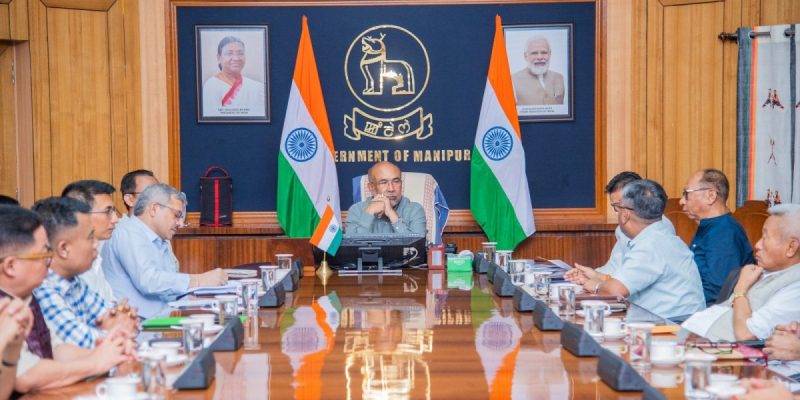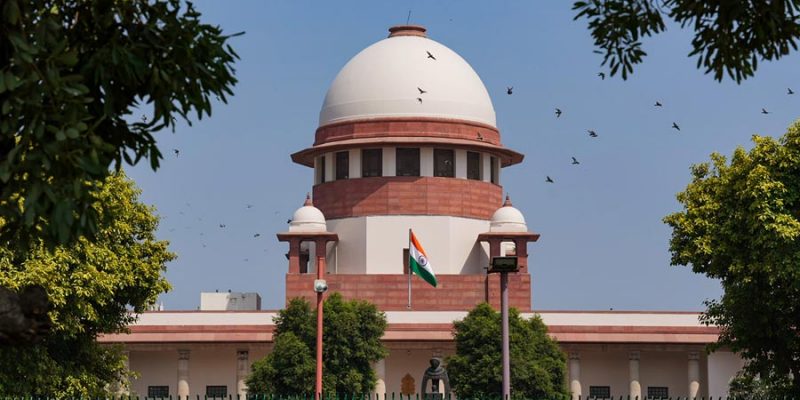Decoding the Karnataka Election Results in 18 Charts

The long-awaited results of the Karnataka general assembly elections 2023 are in, and the Indian National Congress (INC) has emerged as the clear winner with a convincing victory, securing 135 seats and an overall vote share of 42.9%.
This is a remarkable achievement for the party, as they haven’t won such a massive mandate since the 1989 elections, where they secured 178 seats and a vote share of 43.76%. In the 1978 elections, the Congress party had obtained a vote share of 44.25%, bagging 149 seats. However, it’s important to note that prior to 1978, the Karnataka legislative assembly was known as the Mysore legislative assembly and had 216 seats, making any comparison with current results less astute.

The INC emerged victorious, securing an impressive 55-seat gain from its previous tally of 80 seats in the 2018 elections. However, it was a different story for the Bharatiya Janata Party (BJP), which suffered a massive setback, losing 38 seats from its previous count of 104. The biggest change, though, was the dismal performance of the Janata Dal (Secular), which lost almost 50% of its seats from the 2018 elections. The JD(S) had won 37 seats in the previous election of 2018, but this time, it managed to secure only 19 seats.
Vote shares

While the BJP managed to maintain its vote share of 36% from the previous Vidhan Sabha election of 2018, the INC made significant gains by capturing an additional 4.8% of the vote share. Unfortunately, it was bad news for the JD(S), which lost a whopping 5% of its vote share. Interestingly, it seems like the INC may have managed to absorb a significant number of JD(S) votes. We’ll dive deeper into this phenomenon as we explore the various political divisions.
Independent candidates managed to capture a respectable 5.2% of the vote share and secure 2 seats in the Vidhan Sabha. Less than 12 hours after the election results were announced, one of the independently elected MLAs, Latha Mallikarjun from AC-104 Harapanahalli, announced her unconditional support for the INC.


The margins

The election was closely contested, with parties securing seats by varying margins. The table below highlights the range of seat margins. Surprisingly, some victories were secured by a margin of less than 2,000 votes, with BJP winning Jayanagar by just 16 votes. While a significant number of constituencies saw decisive victories, with more than 74 seats being won by a margin of over 25,000 votes, it’s worth noting that 79 assembly constituencies were won by a margin ranging from 10,000 to 25,000 votes.
| Margin of Victory | BJP | INC | JD(S) | KRPP | IND | SKP | Total |
| Less than 2000 | 7 | 5 | 12 | ||||
| 2001 to 5000 | 10 | 17 | 3 | 30 | |||
| 5001 to 10000 | 10 | 15 | 3 | 1 | 29 | ||
| 10001 to 25000 | 18 | 49 | 10 | 1 | 1 | 79 | |
| 25001 to 50000 | 15 | 37 | 3 | 1 | 56 | ||
| Above 50000 | 6 | 12 | 18 |

D.K. Shivkumar, president of Karnataka Pradesh Congress Committee (KPCC), secured the highest victory margin of 1,22,392 votes, making him the only MLA candidate to win with a margin of over one lakh votes in the 2023 Karnataka assembly elections. Interestingly, among the top 10 victory margins, eight candidates belong to the Congress and the remaining two are from the BJP. Out of the top 10 highest margin winners in the 2023 Karnataka assembly elections, Laxmi R. Hebbalkar is the only woman MLA. She won from Belgaum Rural with a margin of 56,016 votes, securing the 9th position in the list.

In the 2023 Karnataka assembly elections, the victory margin in 12 constituencies was less than 2,000 votes. While the BJP won seven of these constituencies, the remaining five were won by the Congress. In this closely contested battle, some prominent leaders won by a narrow margin, including Congress leader Dinesh Gundu Rao, who won by just 105 votes. Nayana Motamma, a first-time contestant, secured her win by a margin of 722 votes from Mudigere. Notably, the BJP’s C.K. Ramamurthy won the Jayanagar seat by a mere 16 votes, defeating INC’s Soumya Reddy. Malur and Srinegri seats were also won by INC with a margin of 248 and 201 votes respectively.
Women MLAs

In the 16th Karnataka assembly elections of 2023, 10 women candidates were elected, surpassing the previous Vidhan Sabha’s count of nine. Ten women candidates out of 185 contestants were successful in winning seats, with Laxmi R. Hebbalkar obtaining the highest victory margin (56,016 votes) among all the winning women candidates and ranking ninth overall in the state. It is worth mentioning that she also had the highest victory margin among all the women MLAs in the 2018 elections as well (51,724 votes). The newly elected Vidhan Sabha comprises four women MLAs from the INC, three from BJP, two from JD(S), and one independent MLA. However, Latha Mallikarjun, has pledged unconditional support to the Congress post the results.
Political divisions

The Vidhan Sabha election analysis provides deeper insights when observed across the six political divisions of Karnataka. These divisions are Bengaluru, Belgaum/Kittur/Mumbai, Central, Gulbarga/Kalyana/Hyderabad, Mysuru/Southern, and Coastal Political Division, as shown in the above image.

In the Bengaluru Political Division, which is the most urbanised division of Karnataka, the INC has been steadily improving its vote share in the Vidhan Sabha elections over the years – from 37.4% in 2008 to 39.5% in 2013, and finally to 40.7% in the 2023 Vidhan Sabha elections.
In 2013, the combined vote share of BJP + KJP + BSRCP was 30.3%. In the 2023 VS results, BJP managed to improve its vote share significantly to 41.2%. BJP has gained both in terms of its seat count (from 11 to 17) and vote share (from 35.8% to 41.2%) in the Bengaluru division.
On the other hand, JD(S) has been the biggest loser in this division, with its seat tally reduced from 7 to 1 and vote share from 20.9% to 12.3% between the last two Vidhan Sabha elections.

The INC was successful in shaking the BJP’s stronghold in the Kittur division.The Belgaum Political Division witnessed a significant turnaround in the 2023 Vidhan Sabha elections as the INC was able to outperform its previous performance. In the 2018 elections, the BJP had emerged as the clear winner in this division. However, in the recent elections, the INC was able to increase its seat tally from 17 to 33 and its seat share from 39.4% to 42.6%.

One of the most significant losses for the BJP occurred in the Central Division, where it came down to six seats from an earlier tally of 24. The BJP had a remarkable performance in the 2018 Vidhan Sabha elections in the Central Political Division, but in the recent 2023 Vidhan Sabha elections, the INC managed to significantly improve its performance. The INC increased both its seat tally and vote share, with a rise in seat tally from 12 to 27 and seat share from 36.2% to 44.2%. However, the JD(S) experienced a decline in vote share from 14.6% to 9%, despite opening its seat tally to two in this division.

Contrary to popular belief, BJP increased its vote share from 18.2% in 2018 to 21.4% in Mysuru division. It is the JD(S) which ceded close to 9% vote share here changing the overall political game. In Southern Karnataka, JD(S) and INC have had a strong presence with BJP gradually increasing its vote share over the four elections. However, in the 2023 Vidhan Sabha elections, INC was able to increase its vote share by 5.8% and secure 30 seats, which is a significant increase from the 16 seats it won in the 2018 Vidhan Sabha election.

In the Gulbarga/Hyderabad Political Division, INC had a good performance in the 2018 Vidhan Sabha, and in the recent 2023 Vidhan Sabha, INC improved its performance by increasing its seat tally from 15 to 19 and its vote share from 42.2% to 43.4%. On the other hand, both BJP and JD(S) have witnessed a decline in both seat count and vote share.

Coastal Political Division has been a stronghold for the BJP. In the 2018 Vidhan Sabha, BJP secured 51% of the votes in this division. However, in the 2023 Vidhan Sabha elections, it has suffered losses in both seat count and vote share, but it still remains the largest political party in this division. On the other hand, INC has shown significant improvement by increasing its seat count from 3 to 8 and vote share from 39.2% to 41.3%. BJP’s seat count has decreased from 18 to 13, and its vote share has fallen from 51% to 46.3%.



Poonam Yadav is the CEO and Founder of Chunaav.







